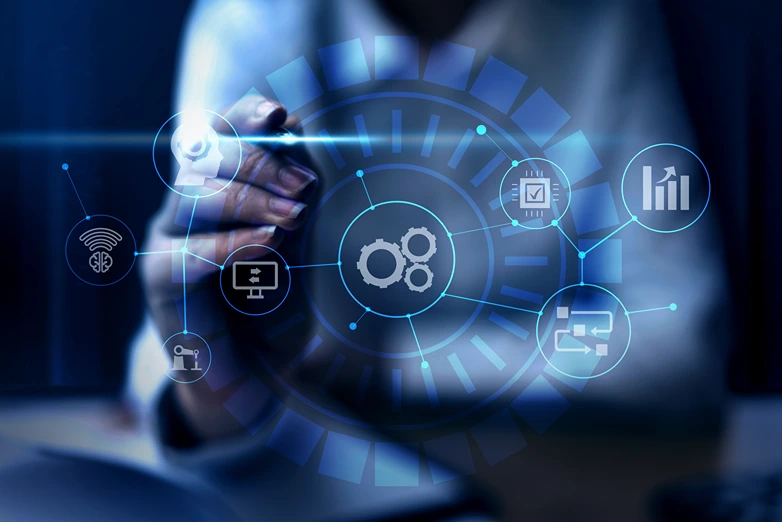Enterprise Resource Planning (ERP) systems have been the backbone of many businesses for managing their operations, processes, and data. As we look towards the future, several emerging trends and technologies are poised to shape the future of ERP systems. In this blog, we will explore some of these trends and technologies and their potential impact on ERP systems.
- Cloud-based ERP: Cloud computing has revolutionized the way businesses operate, and ERP systems are no exception. Cloud-based ERP systems are gaining popularity due to their scalability, flexibility, and cost-effectiveness. They allow businesses to access their ERP system from anywhere, at any time, using any device with internet connectivity. Cloud-based ERP systems also eliminate the need for extensive on-premises hardware infrastructure, reducing IT costs and maintenance efforts. As cloud technology continues to mature, we can expect to see more businesses adopting cloud-based ERP solutions.
- Artificial Intelligence (AI) and Machine Learning (ML): AI and ML technologies are rapidly evolving and are being integrated into ERP systems to automate processes, analyze data, and provide actionable insights. AI-powered ERP systems can automate routine tasks such as data entry, invoicing, and inventory management, freeing up employees to focus on more strategic activities. ML algorithms can analyze large volumes of data to identify patterns, trends, and anomalies, enabling businesses to make data-driven decisions. With advancements in AI and ML, ERP systems are becoming more intelligent, predictive, and capable of self-learning.
- Internet of Things (IoT): IoT refers to the interconnection of devices and sensors through the internet, enabling the exchange of data and information. ERP systems can leverage IoT technologies to collect real-time data from various sources such as machines, equipment, and sensors, and use it for monitoring, analysis, and decision-making. For example, IoT-enabled ERP systems can monitor the performance and condition of assets, track inventory levels, and optimize supply chain processes. As IoT continues to proliferate across industries, ERP systems are likely to become more connected and data driven.
- Blockchain: Blockchain is a distributed ledger technology that provides transparency, security, and traceability of transactions. ERP systems can utilize blockchain to enhance the integrity and security of data across the supply chain, finance, and other business processes. For instance, blockchain can be used to verify the authenticity of products, track the movement of goods, and streamline payment processes. Blockchain-enabled ERP systems can also provide a single source of truth for data, reducing the need for data reconciliation and enhancing data integrity.
- Mobility: With the increasing use of smartphones and tablets, mobile ERP applications are gaining traction. Mobile ERP apps allow employees to access critical business information, perform tasks, and make decisions on the go. Mobile ERP apps can be particularly useful for field service personnel, sales teams, and executives who need real-time access to ERP data while on the move. As mobile devices and networks continue to improve, we can expect to see more robust and feature-rich mobile ERP applications in the future.
- Personalization and User Experience: ERP systems have often been criticized for their complex interfaces and steep learning curves. However, emerging trends are focused on improving the user experience and making ERP systems more user-friendly and personalized. Modern ERP systems are adopting intuitive interfaces, role-based dashboards, and personalized analytics to provide users with relevant information and insights based on their roles and responsibilities. This can improve user adoption and productivity, leading to better overall ERP system utilization.
In conclusion, the future of ERP systems is likely to be shaped by cloud-based architecture, AI/ML, IoT, blockchain, mobility, and improved user experience. These emerging trends and technologies have the potential to transform ERP systems into more intelligent, connected, and user-friendly solutions, enabling businesses to optimize their operations, make data-driven decisions, and stay competitive in a rapidly changing business landscape.

